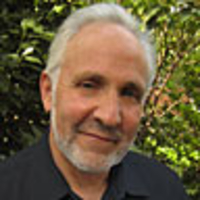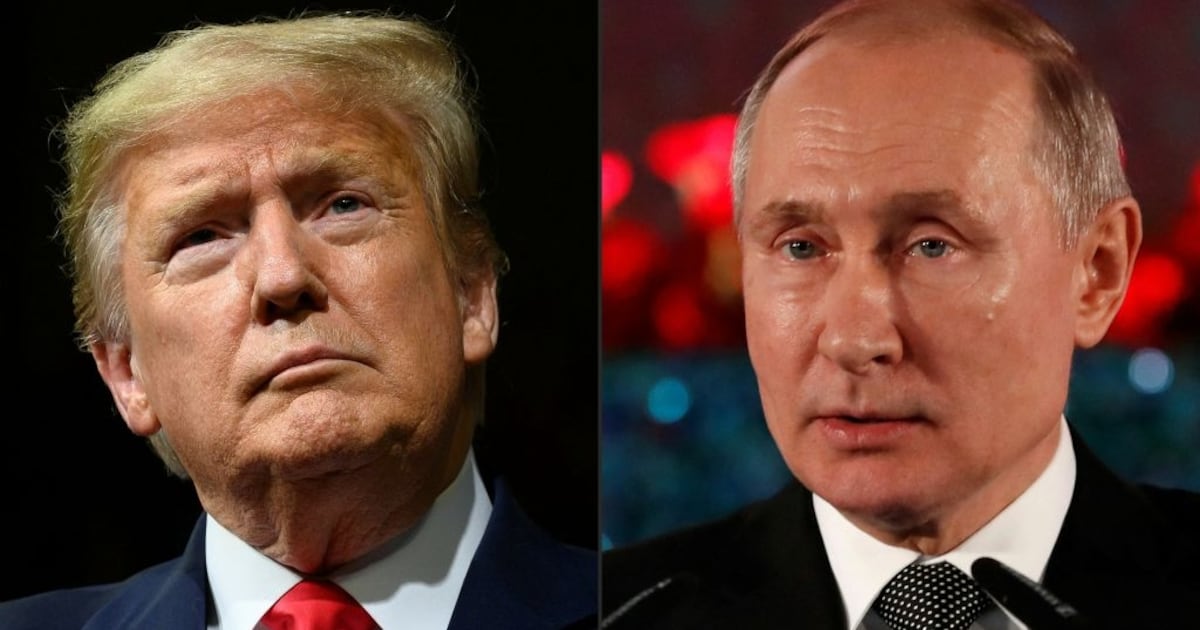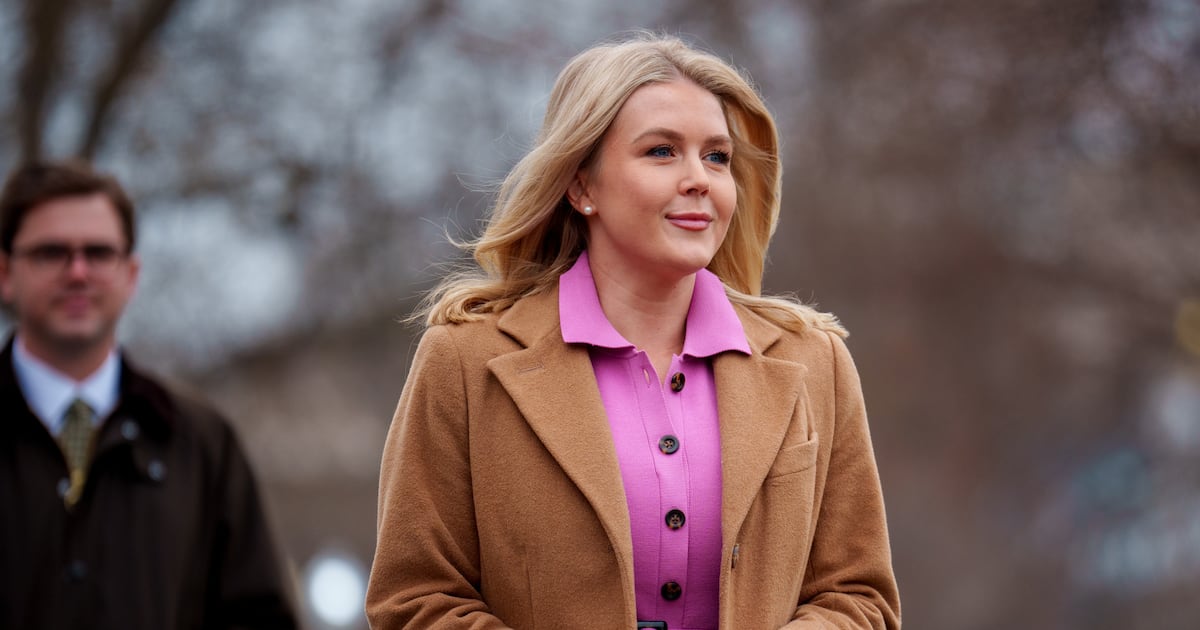Plus: Check out Book Beast, for more news on hot titles, authors and excerpts from the latest books.

In forming his perceptions of the Soviet Union, Ronald Reagan had a friend—a well-dressed, attractive, Russian-speaking, fifty-year-old woman whose ideas about what was happening in Moscow and Leningrad made a bigger impression upon the president of the United States than the reporting and analysis of the Central Intelligence Agency. Her name was Suzanne Massie. She was a writer and author, not an established Soviet scholar. She first met the president on January 17, 1984, when National Security Adviser Robert C. McFarlane brought her into the Oval Office to give Reagan a report on a recent visit to the Soviet Union. They hit it off immediately.
Read James Mann on Ronald Reagan’s inner dove.
The setting was hardly intimate. Reagan was flanked by several other senior officials, including McFarlane, Vice President George Bush and Reagan’s three top White House aides, Michael Deaver, James Baker and Edwin Meese. Nevertheless, as Massie proceeded to describe the mood in Moscow, she focused directly on the president as though he were the only person in the room. Whatever she did worked. Reagan was by nature so remote and impersonal that even distinguished visitors sometimes left wondering if he knew their names—and yet on this occasion, Reagan forged some sort of bond with Massie. He invited her to return to the White House after her next trip to Moscow, and she came back again and again and again. The records of the president’s appointments show that Massie met or talked to Reagan roughly twenty times over the following years, more often than any Soviet expert or indeed anyone else outside his own immediate subordinates. Sometimes, Reagan was joined in these sessions by top level officials, such as his national security adviser. Sometimes, the advisers weren’t invited. Asked many years later whether he had taken part in Reagan’s White House meetings with Massie, Donald Regan, the White House chief of staff from 1985 to 1987, replied, “No, that was always private, and usually upstairs in the family quarters.”
Massie and Reagan began to send each other letters that were mostly about the Soviet Union but occasionally veered towards the personal. “How do you do it, Superman?” Massie asked in a letter in the summer of 1985, after Reagan had returned to the White House from surgery for a polyp in his colon. She sent Reagan little notes on his birthday. Reagan reciprocated. When Massie became a grandmother, the president not only congratulated her but wrote out a separate note addressed to the grandson, Samuel Robert Massie, that began, “Welcome! Your arrival in this exciting and challenging world is a cause for joy far greater than you can know right now....” Reagan’s White House aides began to describe Massie in their memos to one another as a personal favorite of Reagan’s. Asking that some time be set aside for Massie on Reagan’s schedule, one aide wrote to another: “This is important to the President—he likes Suzanne very much.”
There is no evidence that this was some sort of romantic affair; Massie was no Monica Lewinsky. She was fascinated by the Soviet Union, interested in creating a role for herself, and also exceedingly skilled in making connections to powerful people. Before meeting Reagan, she had succeeded in courting and befriending a series of American military leaders and U.S. senators. She disdained formality and institutional structures, and in this respect above all she had something in common with Reagan himself. Massie’s rival for attention within the Reagan White House—the individual whom she disliked, disparaged and envied—was not Nancy Reagan. It was Jack Matlock, the National Security Council’s leading Soviet specialist, who personified to Massie the U.S. government bureaucracy that she frequently sought to circumvent. (For his own part, Matlock, who went on to become a distinguished U.S. ambassador to Moscow, saw Massie as a marginal figure, despite her frequent meetings with the president.)
In a 1986 letter that epitomized Massie’s style and approach, she told Reagan:
I have some thoughts about this [the situation in Leningrad] that I would like to share with you informally. Is there anyway [sic] that we could do this alone, or best of all, with Mrs. Reagan, whom I have always wanted to meet?
Shrewd in the ways of power, Massie no doubt recognized that Nancy Reagan could be a powerful ally and supporter. Mrs. Reagan did in fact join her husband a couple of times for conversations with Massie, but never developed the same warm relationship with her as the president did.

In an interview for this book, Nancy Reagan looked back with chilly detachment at Massie and the role she played. “She was pushy,” Mrs. Reagan observed tersely. Nancy Reagan made sure, however, that Massie was invited to major ceremonial events, including the 1987 White House state dinner for Mikhail Gorbachev and, many years later, Ronald Reagan’s funeral. Massie was grateful for these invitations. She recognized that everyone considered Nancy Reagan to be a tough operator, but Massie believed this was a role Mrs. Reagan was obliged to play in order to offset her husband’s habitual congeniality and his dislike of confrontation. She compared the situation to a doctor’s office. “You know how always when there’s a wonderful gynecologist, he’s got a nasty nurse?” Massie asked.
Reagan obtained a series of benefits from his regular contacts with Massie. She was his source of Russian stories and proverbs. It was Massie who introduced to Reagan the Russian phrase he memorized and then repeated again and again, to Mikhail Gorbachev’s considerable annoyance, throughout the summitry and arms-control negotiations of his second term: “ Doveryai, no proveryai”—“Trust, but verify.”
Massie recognized that everyone considered Nancy Reagan to be a tough operator. She compared the situation to a doctor’s office. “You know how always when there’s a wonderful gynecologist, he’s got a nasty nurse?” Massie asked.
Reagan also derived from Massie his impressions of the Russian people and their history, as an entity separate from the Soviet government or Communist Party. When Reagan went to Geneva for his first meeting with Gorbachev, he was carrying Massie’s book, Land of the Firebird: The Beauty of Old Russia. He was reading it so carefully that in one preparatory session devoted to the coming summit, Reagan interrupted Paul Nitze, his chief arms-control negotiator, to say: “I’m in the year 1830 [in Massie’s book.]….What happened to all these small shopkeepers in St. Petersburg in the year 1830 and to all that entrepreneurial talent in Russia? How can it have just disappeared?” Reagan’s reliance upon Firebird was startling, because when Massie’s book had first been published in 1980, a scathing review in the New York Times had dismissed it as “a heavy breathing comic strip” and “a lollipop speaking baby-talk.”
Massie served other purposes as well. Reagan occasionally used her trips to the Soviet Union for back-channel diplomacy. The histories and memoirs of Soviet-American relations during the Reagan years, such as the books by Matlock and Secretary of State George P. Shultz, give short shrift to Massie. However, the declassified files of the Reagan administration show that at a couple of junctures, she played a more significant role than these histories described: She carried messages back and forth to Moscow concerning the timing, circumstances and conditions of Reagan’s summits with Gorbachev. Her interlocutors in Moscow included an official from the KGB. Eventually, Massie’s direct access to Reagan became so threatening to others in the U.S. government that they campaigned against her, warning in secret memos that the KGB might somehow be using her to influence the president.
The Suzanne Massie saga offers a lens to examine Ronald Reagan’s own ideas, instincts and inclinations concerning the Soviet Union. In evaluating the Reagan administration and in particular its policies towards the Soviet Union, it is sometimes hard to distinguish which elements are distinctly Reagan’s and which represent merely his approval of what others were doing. Some parts of Reagan’s arms-control diplomacy, for example, were largely the work of foreign-policy advisers such as Shultz, who had been carefully nudging Reagan since 1983 to try to seek some agreements with Moscow. Reagan’s political advisers and friends also influenced him on Soviet policy—above all, Nancy Reagan, who years later admitted, “Yes, I did push Ronnie a little” into negotiations with Gorbachev. Yet Reagan’s continuing use of Massie was his own doing. He chose to meet with her and listen to her, from among all the scholars and experts available to him; and so it is worth exploring where she came from, what she represented and what ideas about the Soviet Union made her of interest to Reagan.
Reagan’s contacts with Massie are also significant because they illuminate how the president’s outlook on the Soviet Union evolved during his later years in the White House. In 1984, when Massie was introduced to Reagan, a national security adviser (McFarlane) was attempting to use her to moderate the president’s hawkish inclinations. Conversely, three years later another national security adviser (Carlucci) sought to curb Massie’s access to Reagan because of concerns that Reagan was becoming too dovish towards the Soviet Union. Throughout this period, Massie herself remained a constant; she continued to say the same things about Russia and its people. But the president’s ideas about the Soviet Union altered considerably. Massie didn’t cause this change. Rather, her continuing trips to the White House were a reflection of Reagan’s own odyssey.
James Mann, a former Los Angeles Times correspondent, is author-in-residence at Johns Hopkins School of Advanced International Studies. His previous books include Rise of the Vulcans: A History of Bush's War Cabinet.





